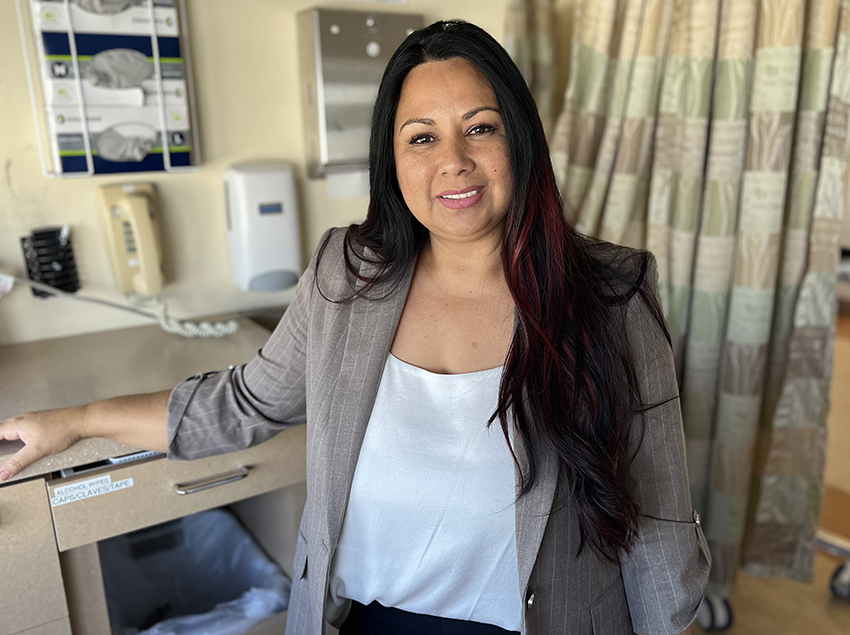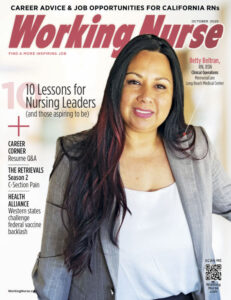Feature
Communicating Under Stress
Practicing mindfulness activities helps you be more effective during difficult interactions

Do you sometimes lash out in anger at a patient or colleague, only to regret it later? Do you find yourself shutting down or tuning out in tense situations?
Practicing effective communication is no easy feat. Nurses need to be able to assess and manage complex, emotionally charged situations with patients, caregivers and colleagues — often in rapidly changing circumstances that require swift judgment calls.
The problem is that we tend to leave ourselves out of the assessment. We underestimate the degree to which our own thoughts, feelings and stress response can impair our ability to communicate in effective, appropriate ways.
Real-World Example: Take One
Consider the following scenario: Sarah is an RN who works nights on an orthopedic surgical unit of a large teaching hospital. At the end of her shift, she promised one of her patients, Mr. Smith, that she would make sure the day nurse would help to get his pain under control.
She recorded the patient’s complaints in his EMR and explained the situation during her verbal report to the oncoming nurse at shift change.
When Sarah arrives at work the following night and begins rounds, Mr. Smith yells at her, “You said you were going to take care of my pain and you didn’t!” Here are some of the things Sarah is thinking and feeling during this confrontation:
Surprise and/or anger
Sarah thought she had set a pain management plan into motion. Why didn’t her colleague follow up? Was she not listening? How could the other nurse let Sarah down like this?
Anxiety and/or fear
Given the patient’s angry demeanor, Sarah is a little worried that he could become violent. She considers what she can do to calm him down and deescalate the situation.
Concern and/or uncertainty
Sarah is also concerned that the patient’s distress could be a sign of some other problem. Her mind races to recall what medications the patient is receiving, what procedures he has undergone, and what side effects or postoperative complications he might be experiencing.
Impatience and/or nervous anticipation
Mr. Smith is probably not Sarah’s only patient, and she can’t help thinking of the long list of other urgent tasks awaiting her this shift.
As all these thoughts swirl around in Sarah’s head, her body responds with increased heart rate, respiration and blood pressure. To communicate effectively, Sarah needs to further investigate the patient’s complaint.
However, with her increasing stress, she may find it difficult to regain her composure and respond constructively to her patient. Instead, she may become defensive, overly apologetic or detached, none of which is helpful.
Emotional Intelligence
Situations like this emphasize the importance of emotional intelligence to effective communication, especially in a high-stress, high-stakes field like nursing.
Emotional intelligence includes skills like self-awareness, self-regulation, confidence, trust in yourself and others, empathy, the ability to correctly identify social cues, and the willingness to honor others’ perspectives.







